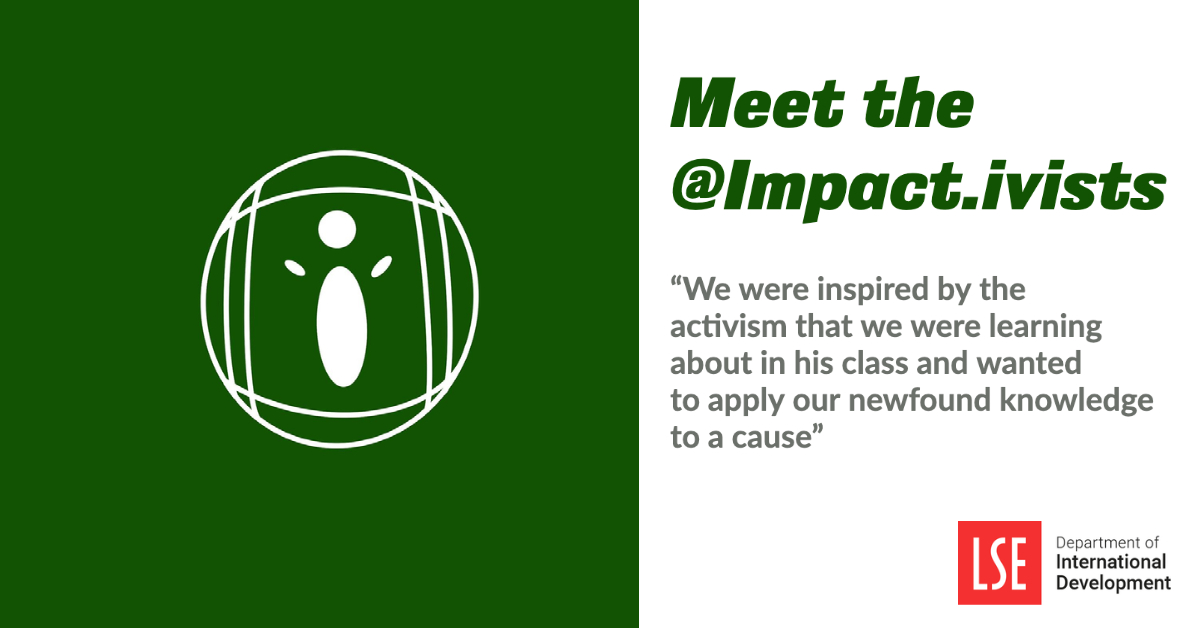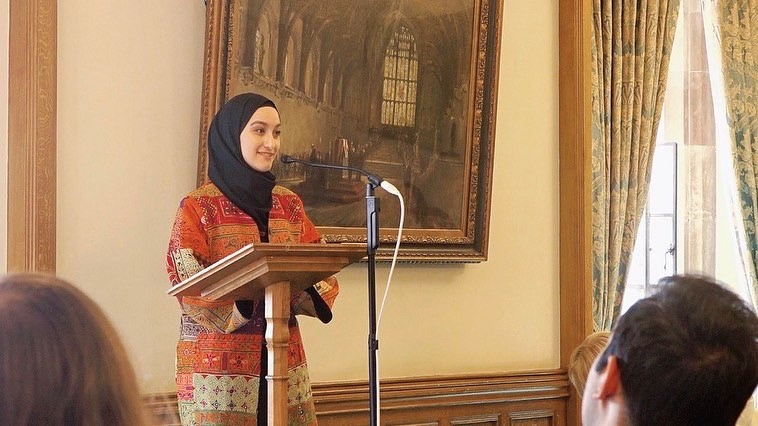In May of 2022, Madison Jansen, Clara Satke, Nina Lacroix, and Noor Lakhdar-Toumi, four postgraduate students in the International Development and Humanitarian Emergencies program, presented their findings from their consultancy report titled ‘Applying policies in practice: preventing sexual exploitation and abuse in humanitarian settings’ at the annual Humanitarian Networks and Partnership Weeks. The team were also granted the opportunity to publish an excerpt of their report in the Humanitarian Exchange Magazine.
The day of the DV410 consultancy allocations, October 15th, 2021, was cause for celebration. For the next six months, we would be working on a team for the United Nations Office for the Coordination of Humanitarian Affairs (UN OCHA) and the Inter-Agency Standing Committee (IASC) to further the IASC’s global mission against sexual exploitation and abuse (SEA) in humanitarian settings by identifying where more policy or clarity is needed to strengthen the IASC’s ‘Six Core Principles Against Sexual Exploitation and Abuse’ policy.
We began by conducting a desk-based review of all IASC members’ policy guidance and procedures to form a better understanding of how the Six Core Principles are practically applied. We then supplemented this review by conducting twenty-one interviews with IASC member personnel in order to gain insight into how these policies are implemented and operationalised. Overall, we were able to identify that despite the IASC’s overarching commitment to preventing sexual exploitation and abuse (PSEA), how cultural norms and national law interact with the Six Core Principles, the inherent power asymmetries that exist in humanitarian settings, and complaint mechanisms and reporting channels are 3 areas surrounding the Six Core Principles that are less well-understood by IASC personnel, leading to implementation challenges. Additionally, we found that a recent revision to one of the Core Principles has in some respects proved to be insufficient, and some IASC personnel may interpret the Six Core Principles to pertain only to behaviour within working hours. These findings led us to ultimately formulate a series of 9 recommendations to the IASC that, with consideration, are designed to address the shortcomings of the Six Core Principles revealed throughout our research.
This experience of working on a consultancy project was one of the most challenging, yet rewarding experiences throughout our time at the LSE. Though balancing our other coursework with the demands of producing an excellent report proved to be strenuous at times, we gained invaluable insight into the inner workings of the humanitarian system, and walk away feeling proud to have aided in the IASC’s global mission towards preventing SEA and operate in accordance with the core humanitarian principle of doing no harm in the delivery of protection and assistance to crises-affected populations.
Our hard work on the consultancy project paid off. Not only were we able to publish an excerpt of our findings in Humanitarian Practice Network’s Humanitarian Exchange Magazine, on May 16th, 2022, we were additionally invited by our client to present our findings to an international audience of over sixty-five individuals at UN OCHA’s Humanitarian Networks and Partnerships Week (HNPW), an annual event that provides a unique forum for humanitarian networks and partnerships to meet and address key humanitarian issues. Publishing our hard work and presenting at the HNPW has been an enriching experience, and above all instilled in us the confidence that protecting those affected by crises through the prevention of sexual exploitation and abuse is a mission that will continue to be strengthened in the humanitarian sector long after our project has ended.
All in all, we are extremely happy and grateful to have participated in the DV410 consultancy project, and to have overall produced work that is valuable to our client. To read the full report, please click here.
The views expressed in this post are those of the author and in no way reflect those of the International Development LSE blog or the London School of Economics and Political Science.
Image credit: rashid khreiss via Unsplash.





